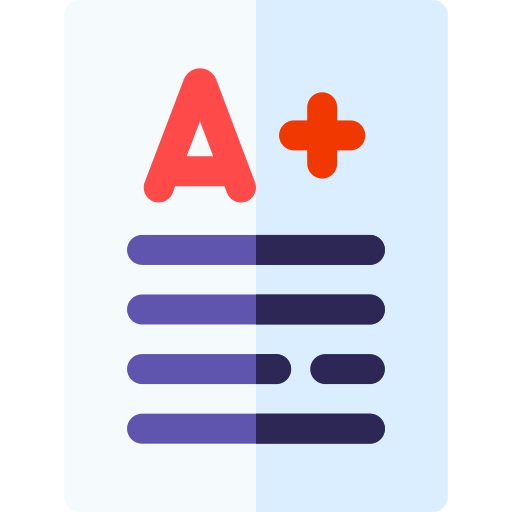دليل المعلم اللغة الإنجليزية للصف التاسع متقدم الفصل الثالث 2021 2022
I. Before the class starts, place your wallet inside the bag
. Hold the bag so the learners can see it and say you have an important possession of yours inside
Divide the learners into small groups. Invite a learner from each group to come
up and feel the object through the bag. They go back to their group and describe the object to their partners
. Elicit from each group what they think the object is and then present it to them Invite learners to spell nullet and write it on the board
Main Activity
Listening: Activity 4
I. Refer learners to the photos in Activity 4 and read the question. Encourage them to guess what Salman is looking for
. Play the audio track once for the learners to find out the missing object
. In pairs, learners compare answers before checking as a class
CORE
Invite a learner to say which object Salman is looking for (wallet). Ask further gist questions, for example Where did he lose i! ? Who nus he with? Who is he talking to now? Elicit that mall and store in American English are shopping centre and shop in British English
Differentiation activities (Support)
I. Play the audio track twice for learners
Differentiation activities (Stretch)
I. Ask learners to listen to the audio track and number the objects in the order they
are mentioned
Answers
1 tabet; 2 headphones; 3 skateboard; 4 wallet; 5 sunglasses
Listening : Activity 5
I. Give the learners time to read through the statements. Clarify any unknown vocabulary
. Play the audio track again for the learners to decide whether the statements are true or false. Encourage them to make notes as they listen and write down their answers in their notebooks
Learners compare their answers in pairs before checking with the class
CORE
Feedback
Read out the statements one by one and have learners raise their individual whiteboards with true or false written on them. Nominate learners to correct the false statements
Answers
1 False (He had his wallet in his pocket); 2 False (He had the screen on his tablet fixed); 3 True; 4 True; 5 False (He didn't know he was a thief ald he was surprised to find this out); 6 True
Use of English: Activity 6
I. Read the Use of English box as a class
. Read out the example and point out that the object is between the auxiliary verb have and the verb/past participle
. Remind learners that we can say who did the action using by + person. Point out that we often don't have to say who did it because it's either easy to understand or not important to mention. Elicit who did the actions in the examples For example a computer technician / worker at the computer store fixed the tablet and a thief stole Salmarfi wallet
. Allow learners a few minutes to rewrite the sentences in their notebooks. Ask them to compare their sentences in pairs
CORE
Invite learners to write out a sentence on the board
Answers
1 1 have my room cleaned once a week. 2 Our car broke down so we're having it fixed
If you leave your bicycle out all night, you'll have it stolen. 4 We're going to have our house next weekend. 5 1 had my sunglasses broken yesterday so I need to buy new ones
Speaking : Activity 7
I. Read out the questions and the definition of pickpocket and pick someone 's pocket
in the Vocabulary box
. Give learners a few minutes to discuss the questions in pairs or small groups Monitor their discussions
CORE
Feedback
Elicit whole class feedback on each of the questions
Differentiation activities (Support)
I . Discuss the questions one by one with the whole class
Differentiation activities (Stretch)
I. In pairs, learners write a short dialogue between Salman and his mother. Salman
has gone back to his hotel after talking to the police officer and is explaining what
happened. His mother gives him advice about how to stay safe next time
. Invite learners to act out their dialogues
Workbook : Activity 4
l. Explain that the text is a summary of Salman's story. Allow a minute or so for
learners to complete the text with the verbs
DESIRABLE
Invite learners to read the text. Ask them to identify the sentences with the structure
have something done
Answers
1 stolen; 2 pick up; 3 fixed; 4 broken; 5 went; 6 looked; 7 pushed; 8 apologised
l. Invite learners to stand up and present their treasured possession to the class They only have to identify it and say what they use it for
. Ask Have you ever lost your treasured possession ? Elicit answers from the class
. Refer learners to the Starter questions. In pairs, learners can talk about different possessions. not only the one they brought. Elicit further information: What nus it and did _vou find it
Main Activity
Reading: Activity 1
I. Write on the board: What can you see ? Who do you think this girl is ? What do you think she lost? And how
. Put the learners in small groups Invite them to look at the picture and discuss the questions on the board. Elicit ideas from the class
. Allow learners to read the text once and find out
CORE
Feedback
Invite learners to answer the questions on the board based on information from the
text
Answers
She lost her umbrella on a London bus. She found it in the Lost and Found office
Someone found it and took it there
Vocabulary : Activity 2
I. Point to the two diagrams and read out the headings. Ask learners to copy them in their notebooks
. Point out the adjectives in bold in the text. Allow learners two minutes to read through the text again and write the adjectives in the correct diagram
. Ask them to compare diagrams in pairs before they check with the class
CORE
Feedback
Draw the diagrams on the board and invite learners to write the adjectives
Answers
Adjectives for umbrella: useful; beautiful; transpuent; pretty; light; wonderful Adjectives for Mariam's feelings: pleased; upset; afraid; happy
Differentiation activities (Support)
l. Drill the adjectives and correct any problems with pronunciation or stress
Differentiation activities (Stretch)
I. Ask learners to find synonyms and / or opposites for some of the adjectives Allow them to use dictionaries if necessary and encourage them to add them to their diagrams You can teach them the — symbol (meaning •similar' for synonyms) and the symbol (meaning 'opposite' for the opposites)




